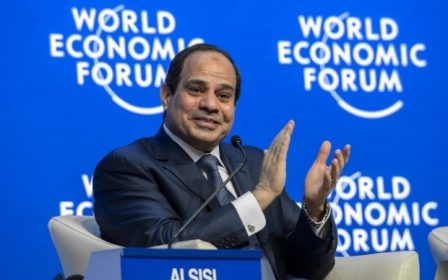Kuwait to raise power prices for first time in 50 years

Kuwait's parliament passed a bill on Wednesday allowing the government to raise power and water charges on foreign residents and on businesses, but exempted the Gulf state's citizens.
If given final clearance, it will be the first time in 50 years that oil-rich Kuwait has raised power charges.
Thirty-one MPs voted in favour of the bill, while 17 members opposed it. The second and final round of voting will take place in two weeks.
MPs initially rejected the bill but later approved it after Kuwaiti citizens were exempted.
The emirate is home to 1.3 million nationals and around 3 million foreign residents.
Kuwait has the highest proportion of domestic workers per household of any of the Gulf states, all of which rely on foreign labour – nearly 90 percent of Kuwaiti households employ a domestic worker.
New laws formulated last year mean foreign workers now have the right to a minimum wage of $150 a month.
Like other crude exporters, Kuwait's oil-dependent revenues have dwindled since oil prices crashed by over 70 percent from their mid-2014 peak.
The bill entails raising power charges in apartment buildings, which are overwhelmingly used by foreigners, from the current flat rate of two fils (0.7 cents) per kilowatt gradually to up to 15 fils (five cents) per kilowatt.
For commercial uses, it will be raised from two fils per kilowatt to 25 fils per kilowatt, an increase of 1150 percent.
Water prices will also be more than doubled.
Electricity and Water Minister Ahmad al-Jassar told a heated debate in parliament that the government was paying around $8.8 billion annually to subsidise power and water production.
If no action was taken, consumption would triple by 2035 and subsidies would rise to $25 billion, the minister said.
The aim of the bill is to cut consumption by over 30 percent, he said.
But most lawmakers strongly rejected the government plan to raise power charges on citizens, blaming it for what they called economic mismanagement.
"This would be the biggest crime against citizens and expatriates," MP Saleh Ashour said.
Independent MP Jamal al-Omar blamed government failure for the economic crisis.
"The cause of the crisis is not the drop in oil prices alone, but also the government's failure ... Our government is incapable of managing the country," Omar said.
The government also plans to hike heavily subsidised petrol prices, one of the cheapest in the world.
Kuwait posted a budget deficit of $20 billion in the past fiscal year, according to provisional figures, following 16 years of windfalls due to high oil prices.
Kuwait has until now remained the only country in the Gulf not to raise power and petrol tariffs since the sharp drop in oil prices.
Stay informed with MEE's newsletters
Sign up to get the latest alerts, insights and analysis, starting with Turkey Unpacked
Middle East Eye delivers independent and unrivalled coverage and analysis of the Middle East, North Africa and beyond. To learn more about republishing this content and the associated fees, please fill out this form. More about MEE can be found here.




